
“I am so grateful for Solent, I don’t think I would be where I am without the uni, course or lectures”

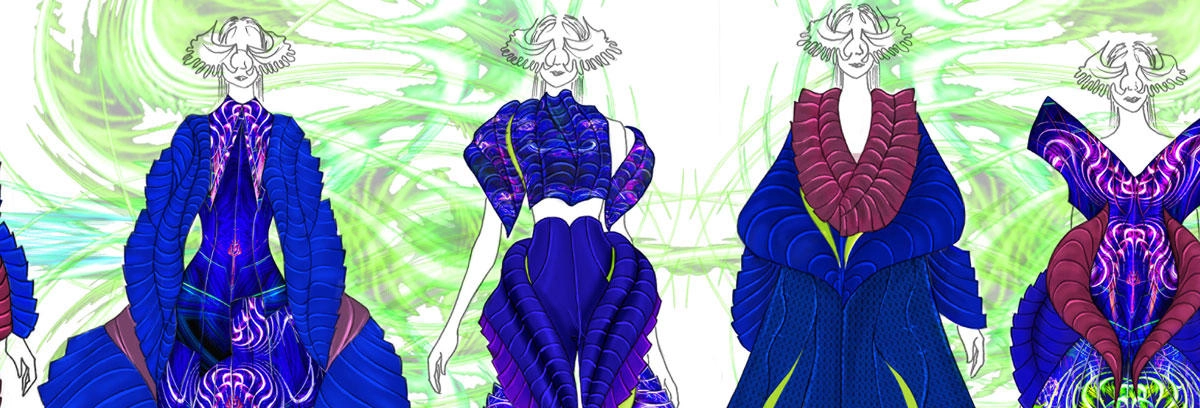
Make your cutting-edge designs ready for the catwalk. This degree will nurture your creativity through practical experience from tailoring to streetwear in our specialist fashion studios.
Contact international admissions
Email: Call:This degree will nurture your creativity through practical experience spanning tailoring to streetwear, and silhouette to textile experimentation.
Throughout the course you'll be supported to gain an in-depth knowledge of the fashion design process from initial concept, research and design development, through to the realisation of final design outcomes. With the freedom to explore both menswear and womenswear, you are encouraged to include print design and textiles into fashion design projects.
The academic team have a real focus on getting to know each student individually, and with a wide range of design briefs, from the highly creative to live commercial projects, you will be encouraged to push your creative design skills and develop your individual design identity - gaining an understanding of where you fit best in the industry.
You'll study advanced technical skills such as creative pattern-cutting, garment manufacturing, and digital print design in our industry-standard facilities which include specialist machine rooms, digital and sublimation printers, and a range of laser cutters.
Emphasis is also placed on developing professional visual communication skills, including fashion illustration, technical drawing, and mood board presentation, enabling you to build an exciting and industry-ready portfolio of design work.
To complement your studies and to gain professional industry experience, you'll be required to do a work placement. Past students have gained internships at House of Holland, Timberland, Alexander McQueen, Ted Baker and Marks & Spencer.
Work from our final year students across our fashion-related degrees is showcased at Graduate Fashion Week (GFW). In 2023, seven students have been shortlisted by the Graduate Fashion Foundation across a number of different categories at the GFW23 awards. Read more about the students and their work.
If you're looking to study our fashion design degree but don't have the relevant qualifications or experience, the art and design foundation year will help you develop the core skills and knowledge to progress. Find out more about the art and design foundation year.
Member of:
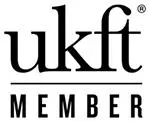
Take a look at some of the work our students have produced for their final major projects.


Solent’s BA (Hons) fashion design degree is for students who are passionate about fashion design; who are keen to advance their creative design ability, knowledge of fashion industry practice and develop advanced creative technical skills.
Applicants should have previously studied a creative art and design subject, and have a portfolio of design work that demonstrates their skills and love of the subject area.
This course primarily prepares students for design and studio assistant roles in menswear and womenswear for a wide range of market levels, from the high street to high-end.
Graduates also have the relevant skills to go into print and textile design roles. Graduates have also entered into roles such as assistant buyer, production assistant, pattern-cutter, and trend forecaster.
Hear from Solent alumni about where their careers have taken them and how studying at Solent prepared them for their future.
Read more stories
“I am so grateful for Solent, I don’t think I would be where I am without the uni, course or lectures”

You’ll be learning from an innovative academic team, with backgrounds in menswear, sustainable practice and circular fashion. Our team have a prestigious client list, including amongst others Louis Vuitton, Alexander McQueen, Gucci, NIKE, Mulberry, GANT, Beyond Retro, Moss Bros, Nicole Farhi, UK Vogue, Glamour and ELLE.
The University cannot guarantee any particular members of staff will teach specific aspects of the course in the future, but will endeavour to ensure the teaching team maintains their balance of experience and qualifications.
Students are taught in specialist studios with a range of industrial machines for garment production and pattern-cutting equipment. Access is also available to digital and sublimation printers and a laser-cutter, and photographic equipment and studios. In the third year, each student also has their own designated studio space.
Away from studying, why not try out the gyms, fitness studios and sports halls in our £28 million Sports Complex, or watch a blockbuster film at our student-run cinema with Dolby Atmos audio.
Broaden your horizons by adding an international dimension to your CV – essential to achieving success in today’s fast-changing, global environment.
Studying, working or volunteering in another country could be the experience of a lifetime. Enhance your degree by developing important global skills such as knowledge of other countries, language skills, intercultural awareness, adaptability and confidence.
For more information, please email international.mobility@solent.ac.uk.
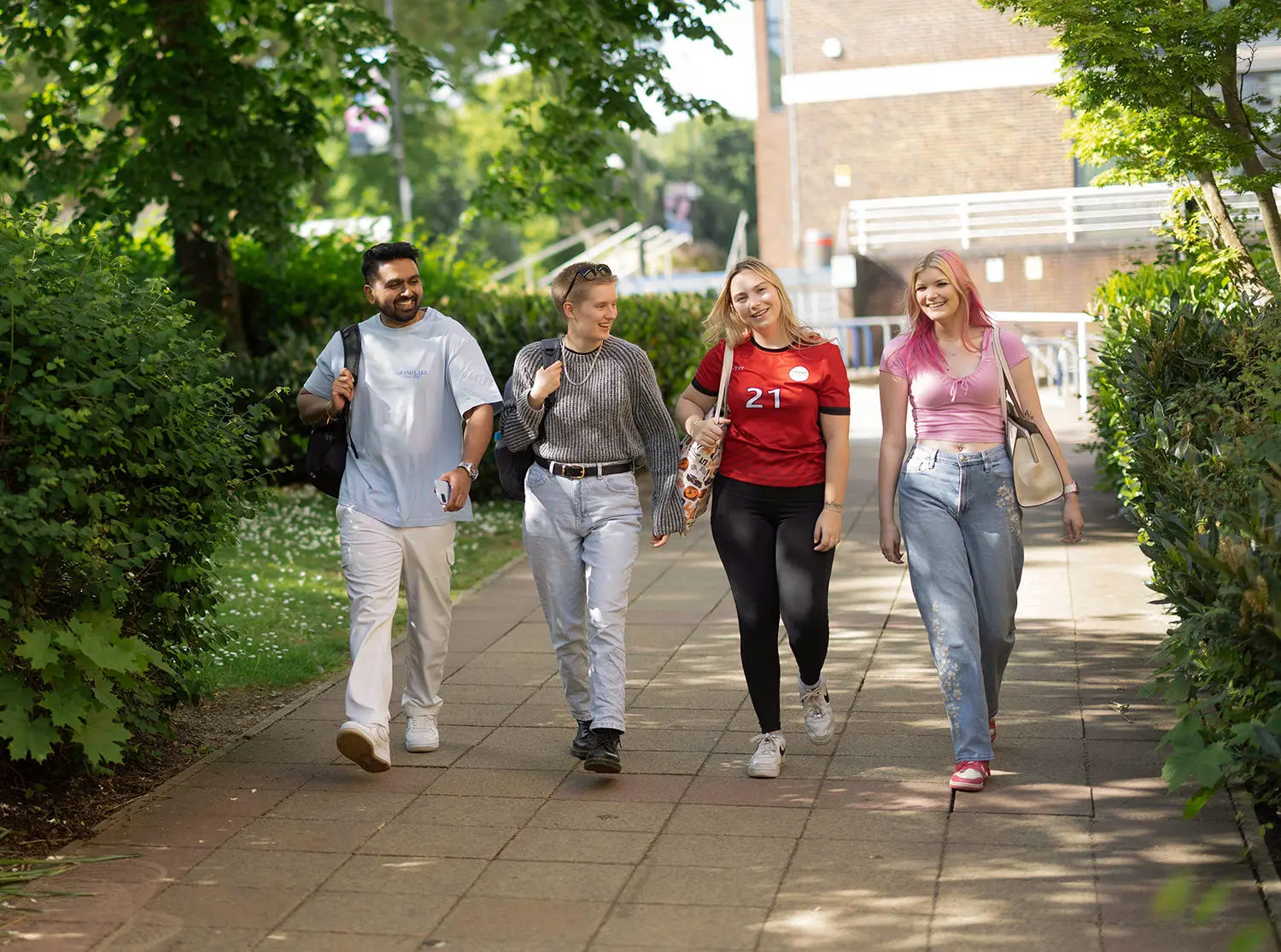
Metamorphosis introduces students to creative exploration through hands-on, practice-led workshops and foundational research skills. As your first university experience, this module builds confidence, community, and creative identity while allowing broad experimentation. You'll develop practical abilities, understand research-informed practice, and produce a portfolio demonstrating progression across diverse creative disciplines.
In this module you'll be introduced to the creative challenges of communicating ideas within contemporary art and design through a themed, practice-led project where you'll develop concepts through hands-on research, experimentation and visual exploration, mirroring real-world creative processes. By engaging with techniques such as mark-making, surface design, mood-boarding and contextual investigation, you'll build the foundational skills and confidence needed for specialist study.
In this module, you'll collaborate with students on other creative foundation years. You'll begin to explore the professional world of creative practice via an introduction to the soft and hard skills that cut across the creative industries, by investigating future pathways and opportunities, and by kickstarting a personal narrative about your own role in the creative industries sector.
As the final module on the foundation programme, this module showcases the diversity of creative skills represented across the creative foundation courses and gathers these skills together in the end-of-year showcase. You will use your specific skillset to contribute to this overall project - cross-disciplinary collaboration is encouraged. The showcase is your opportunity to share your project with key partners and celebrate your contributions with their fellow creative foundation students.
In this module, you'll investigate how the silhouette - the outline or contour of a garment - communicates concept and identity in fashion. You'll focus on shape, volume, proportion and line, exploring how manipulating these elements transforms perception of the body and communicates a message about the wearer.
This module introduces you to the creative sequential process involved in the primary stages of fashion design. You will learn how to develop and creatively communicate an individual concept informed by creative research using a variety of sources, and how to respond to this research with initial design ideas. You'll also learn core pattern cutting and garment production methods.
This module requires you to design an on-trend range and make a garment for a specific fashion brand, market level, and customer, developing your knowledge of industry practice. The module also importantly enables you to develop your fashion design, print design, pattern-cutting and garment making skills, as well as furthering essential digital skills, using industry-specific software.
This module focuses on the world of fabrics and the design of surface textiles, including more eco-conscious options. As well as learning about fabrics, you'll learn and explore digital print design, screen printing, fabric manipulation and laser cutting techniques to produce a wide range of surface textile samples in response to a concept or theme.
This shared, interdisciplinary module provides a 'launchpad' for students across our fashion courses, to collaborate on a live brief - mirroring the professional creative team environment. This client-focused module will give you the confidence to get out into industry and give you the ability to apply the skills gained during your first year of studies.
In this module, you will deconstruct and reinvent 'classic' garments, challenging the symbols, assumptions, and cultural codes that they traditionally communicate. Through a combination of design experimentation and semiotic research, you'll explore how clothing functions as a system of signs and how those signs can be subverted, furthering your creative design ability in the process.
In this module you will step into the role of a fashion designer working for an established brand that specialises in functional clothing. You'll be required to design a range of garments that merge functionality and aesthetics, as well as be in-line with forecast trends. Designs must be commercially viable and forward-thinking to appeal to a customer. To further your pattern-cutting and sewing skills, you'll make final products in real fabrics.
This module will develop your individual design identity, deepen your understanding of the creative design process, and further your technical skills through the development of a cohesive, high-end ready-to-wear collection. You'll develop a concept based on a selected or invented ‘muse’ and will use this to inform the concept and creative design of a capsule collection that includes sustainable fabrication.
Please note: Not all optional modules are guaranteed to run each year.
This immersive, practice-led module challenges you to create a product range to a live brief from a partner company. You will develop a complete buying and merchandising plan for a new capsule collection, including market and trend analysis, range planning, and sourcing strategy, providing tangible evidence of their professional competencies.
In this module you'll create a hardcopy portfolio with tactile elements to take to graduate events and job interviews, as well as build a complimentary online/digital presence. Portfolio work will tell the story of your final collection, as well as include a follow-on collection and a design competition entry.
In this module you'll investigate and evaluate eco-conscious design methods within the industry, and use either one or a combination of methods to design a range of clothing and produce a prototype of a garment that reflects innovation, responsibility and aesthetic appeal.
In preparation for the Final Collection: Production module, you'll focus on developing an individual and visually exciting concept and use this to inspire a range of creative design ideas that are thoroughly explored, analysed and developed through to the initial prototype stage. This process enables you to further advance your skills in and knowledge of the creative design process, alongside key technical and digital skills, realising your unique design identity in the process.
In this module you'll push your creative design ability and technical skills to new levels - to problem solve and think innovatively, resulting in a fashion collection that communicates a strong personal design identity and a range of professional skills and knowledge. This module is informed directly by the Final Collection: Research and Development module and you can create either a 3D or 2D fashion collection.
Contact international admissions
Email: Call:As part of this course, you will study one module at a time, giving you the chance to build a deeper understanding and see the results of your hard work more quickly. With regular assessments and feedback, rather than exams all at once, you’ll also benefit from improved focus, and a more manageable workload.
Learn more about block teaching
The student achievement team are on hand to help you succeed during your studies at Solent. They aim to contact you at key times during your time here with personalised information, advice and guidance, by email or phone.
The disability advice team provides information, advice and guidance for disabled students.
All students can access Succeed@Solent, Solent's online guide to getting better grades. It offers extensive, practical information and advice on topics such as academic writing, research and presentations.
A recent UKFT report shows that the UK fashion and textiles industry is one of the largest sectors in the country, supporting 1.3 million jobs and contributing £62bn to the UK economy. The industry also supported 197,000 jobs for people under the age of 25 in 2021.
To help prepare you for the industry, and thanks to the course team's close industry links, you'll have the opportunity to take part in live commercial projects in all three years of study.
You'll also be encouraged to collaborate with students from other fashion courses including fashion photography, make-up and hair design and fashion styling, providing excellent networking opportunities.
We take an active part in Graduate Fashion Week, with a number of our students showing on the catwalk each year. In 2019, one of our students was selected for the Gala Show and two students were offered internships at Givenchy. For the past three years, our students’ work has also been selected to promote Graduate Fashion Week and has been featured in Vogue.co.uk, Elle.co.uk and Drapers.
Associate lecturers are also currently working in the fashion industry, and play a crucial role in teaching on the course.
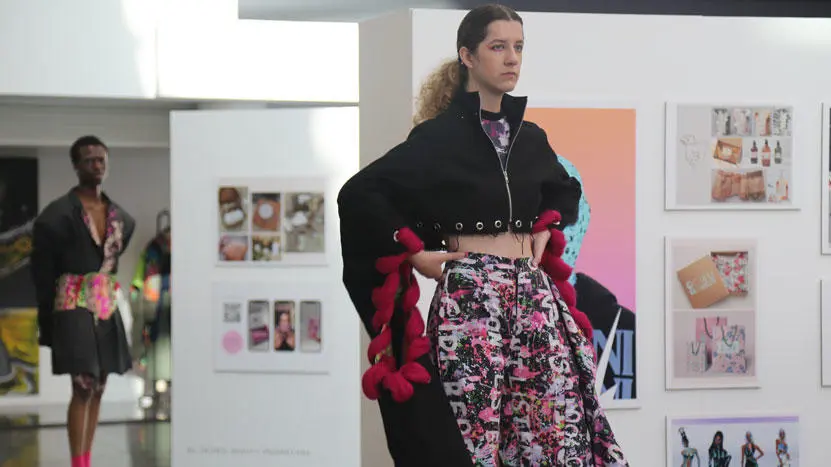
Starting salary £16,000 to £18,000
Junior designers could earn around £25,000 a year. Senior designers or creative directors can range from £42,000 to in excess of £85,000.
Starting salary: £15,000 to £20,000
A junior designer with one to two years' experience could earn between £22,000 and £25,000. Salaries for senior designers or design directors can be around £30,000 to over £40,000.
Starting salary (employed junior stylist): £23,000 to £30,000
Freelancing is very common - an assistant stylist could earn between £50 to £150 per day (£7.70 to £8.20 per hour).
The stated salaries are published on prospects.ac.uk. Income figures are intended as a guide only.
Hear from Solent alumni about where their careers have taken them and how studying at Solent prepared them for their future.
Read more stories
“I am so grateful for Solent, I don’t think I would be where I am without the uni, course or lectures”

The Solent Careers team is committed to getting students into great careers.
While you are studying, the team can help you with finding work experience or placements, link you with a mentor, check your CV, or offer one-to-one guidance.
We also have graduate job opportunities just for Solent graduates.

6th
UK uni for sustained employment
Longitudinal Educational Outcomes, 2022
Every student at Solent University will also have the option to study an additional Certificate in Practical Artificial Intelligence qualification alongside their course. Free of charge, the course ensures you'll be prepared for a fantastic and varied career after graduation.

Thinking about studying further than an undergraduate degree? Alumni can get 20% off their postgraduate study.

Take charge and lead a wealth of fashion and beauty brands to success with your innovative and creative vision on this practice-based master's degree.
Find out more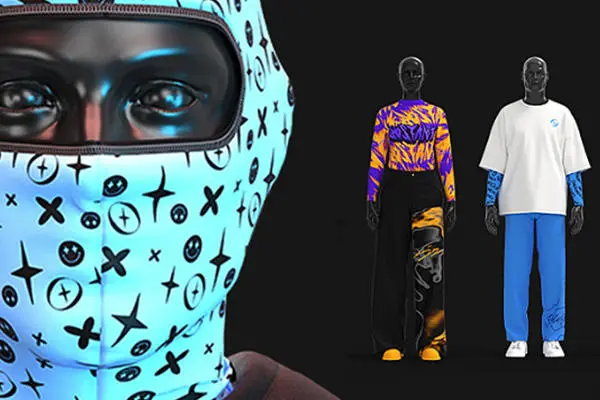
Gain the skills and knowledge to work in the ever-changing global fashion and technological landscapes – whilst contributing to the sustainable future of the fashion, beauty and lifestyle industries.
Find out moreThe tuition fees for the 2026/27 academic year are:
For further information, please visit our tuition fees page.
While most course costs are covered by your tuition fees, some essential resources and optional extras may need to be paid for separately. These additional costs are listed below. For advice on budgeting and managing your money, please contact student.funding@solent.ac.uk.
The 2026/27 additional costs are not yet available. For guidance, previous additional costs have been:
Compulsory costs:
Optional costs:
Solent University offers a range of bursaries and scholarships that provide financial assistance or waive fees for tuition or accommodation. Each bursary or scholarship has specific eligibility criteria. Check out our bursaries and scholarships pages to find out more.
Cost of living support
At Solent, we understand that the cost of living crisis may be of some concern. To help, we've put together some detailed information to show what support is available and how to make your money go further.
Graduation costs
There is no charge to attend graduation, but you will be required to pay for the rental of your academic gown (approximately £45 per graduate, depending on your award). You may also wish to purchase official photography packages, which range in price from £15 to £200+. Graduation is not compulsory, so if you prefer to have your award sent to you, there is no cost. Extra guest tickets will go on sale after results publication and will be sold on a first-come-first-served basis. The cost per ticket is currently £20. Please note, we do not guarantee there will be any extra tickets available to purchase.
Contact international admissions
Email: Call:Please select an option below:
As a general guide, we look for qualifications that are equivalent to the British high school A-levels.
If you are applying from outside the UK, find information about entry requirements, visas and agents for your country here.
For further information about EU qualifications, please see our course entry requirements document.
As a general guide, we look for qualifications that are equivalent to the British high school A-levels.
If you are applying from outside the UK, find information about entry requirements, visas and agents for your country here.
For further information about international qualifications, please see our course entry requirements document.
All international applicants need to be aware that the English language requirements to attend Solent University, and the English language requirements to obtain a visa from the Home Office, may be different. This means that if you meet the Solent University language requirement to gain a place on the course, you may still have to meet additional requirements to be granted with a visa by the Home Office.
We strongly advise all applicants to visit the Home Office website which outlines all the requirements for a successful visa application.
Full-time
Any student applying for the first year of a full-time/sandwich undergraduate course must apply through UCAS (University and Colleges Admissions Service). This includes mature, overseas and EU students.
Nearly all schools and colleges offer their students the facility of applying electronically through the UCAS website using 'Apply'; it may also be used by those applying independently in the UK and overseas. This facility and all course information can be found on the UCAS website: www.ucas.com.
Your application should reach UCAS by 14 January if you hope to enter a course the following autumn. Early application is advised for the most popular subject areas. Late applications may be made until the end of June. The UCAS Code for the University is S30, code name SOLNT.
Find out what happens after you apply
Contextual offers
Solent endeavours to offer learning opportunities to students from all backgrounds. When we receive and review an application, we take into consideration the context and personal circumstances of applicants when making a decision, which means our advertised entry tariff could be reduced.
Find out more about Solent's contextual offers
Top-up route:
We welcome applications from students currently studying a Foundation Degree, DipHE, HNC, HND or modules of an undergraduate degree course at another university, who wish to enter directly into Years 2 or 3 of one of our undergraduate degree courses. Please contact our admissions team for more information: contact us
Applicants who do not have English as their first language will be required to demonstrate an approved level of proficiency in the use of the English language. The agreed minimum requirements for this course are:
IELTS 6.0 overall with a minimum of 5.5 in each individual component
or equivalent.
Qualifications are checked before enrolment, and international students must bring their original certificates or certified copies when coming to study at the University.
The University also offers a pre-sessional English programme for international students who wish to improve their level of English before starting a degree course.
Contact international admissions
Email: Call: